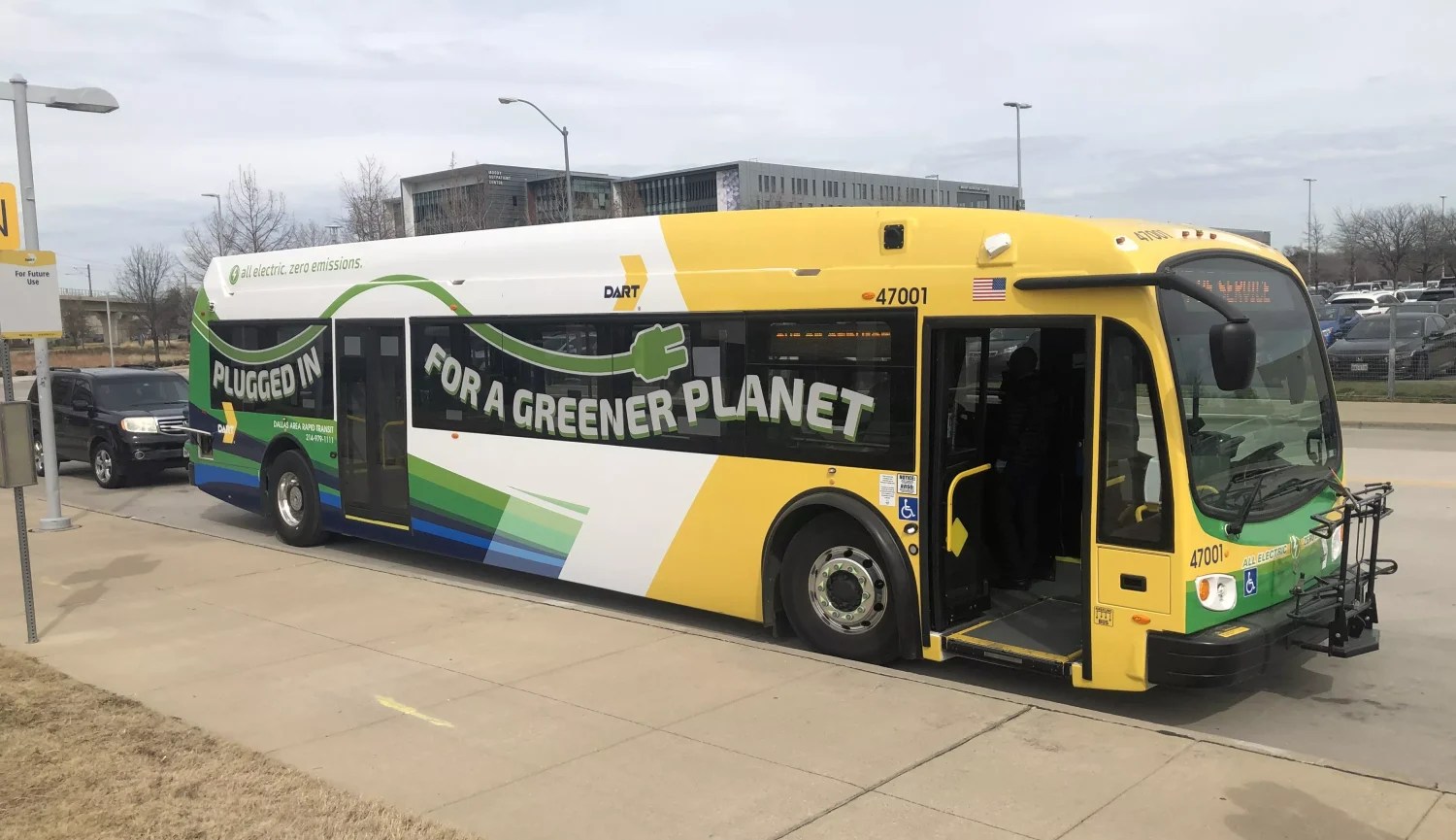
Gordon Shattles/DART

Audio By Carbonatix
Soon the Dallas Area Rapid Transit (DART) board of directors will vote on the controversial new General Mobility Program, which would result in the largest service changes in DART’s 40-year history.
“Over the last year, some of DART’s member cities have expressed concerns about the level of service they receive compared to the sales tax collected within their city,” reads the organization’s website page explaining the proposed changes. “In response, the DART Board approved a General Mobility Program (GMP) that redistributes 5% of the agency’s annual sales tax among seven eligible member cities for the next two years.”
The GMP was first proposed by the board in March, in response to the unexpected progression of a bill, House Bill 3187 or the “DART Killer Bill,” that would fundamentally restructure the funding system of the transit system.
“This bill isn’t a tweak to funding. It’s a full-on dismantling of the DART system,” said Jeamy Molina, DART chief communications officer said in a release responding to the bill passing the Texas Committee on Transportation. “The people of North Texas voted twice to fund a unified, regional transit system. House Bill 3187 completely ignores their voice and puts the future of public transportation in jeopardy.”
The bill would have allowed certain member cities to elect to reduce their one-cent sales tax contributions by a quarter, resulting in billions of dollars in losses for the transportation system. Rep. Matt Shaheen, who filed the bill, represents the city of Plano, which has largely driven the spreading opposition to the funding system.
“DART celebrated its 40-year anniversary in 2023,” Mark Broadhurst, an Amalgamated Transit Union Local 1338 board member and DART mechanic, told the Observer in June. “My question is, after all these years, why now does Plano all of a sudden have a problem? They’ve mismanaged their budget and destroyed their infrastructure. They need money from someone, and have pointed their finger at DART.”
A recent study from a third party hired by DART unveiled that Highland Park and Plano contributed more than other member cities, but received less service compensation. According to the report, Plano had contributed more than $109.6 million to DART in 2023, but the service had only invested $44.6 million back into providing services in the suburb. Comparably, Dallas contributed $407.8 million, but received $690.5 million back in total service offerings.
The bill ultimately failed to be scheduled for a legislative hearing, but it was enough to scare the DART team into finding a middle ground with the cities. In a series of meetings to get feedback on the proposed changes, the DART team vehemently clarified that the changes were “the worst case scenario,” and that a combination of any of the changes, if any were adopted, was possible. The changes, should any be approved, will go into effect in January.
Here’s a detailed breakdown of some of the proposed changes:
Route Eliminations
One of the proposed changes is the elimination of nine bus routes and some zones where DART offers on-demand curb-to-curb transportation, called GoLink.
The bus route cuts will affect lines in Addison, Dallas, Irving and Plano. Under the GMP, the following lines would cease:
209 – McKinney/Cole
225 – Nursery
234 – Parker Road
242 – Walnut Hill
254 – Legacy
255 – Story Road
305 – Addison Express
378 – Red Bird Express
383 – Lake Ray Hubbard Express
The GMP could also eliminate GoLink services in South Dallas and trash GoLink Zone-to-Zone Pilots, which connected GoLink zones across the region.
Frequency Reductions
Some of the changes include significant service frequency reductions to most bus routes, the light rail, the Trinity Railway Express (TRE), and the still-under-construction Silver Line.
The light rail frequency will decrease from 15-minute intervals to 20 during peak hours, from 20 minutes to 30 after 7 p.m., and at all times on weekends.
The TRE and the Silver Line will only arrive once an hour at all times. During peak hours, the TRE currently arrives every 30 minutes.
Several popular bus lines, routes 1-57, have varying changes, but most are being reduced in frequency by five to 10 minutes.
Routes 101-122 will operate once an hour after 7 p.m. and on weekends. Currently, two buses operate each hour.
During several community meetings about the proposed changes, DART-dependent residents pointed out that an hour is a really long time to wait for a bus, especially in the fall when the sun sets much earlier.
Paratransit Service Changes
Of all the proposed changes, the changes to paratransit transportation, which serves the disabled community, emerged as the most contentious in the community feedback meetings we attended.
The new GMP will reduce the service area they currently cover to the national Americans with Disabilities Act standards, which require paratransit services within three-fourths of a mile of all fixed bus routes. This change notably excludes MyPossibilities, a popular nonprofit organization that offers socialization and acclimatory skills classes to adults with Down syndrome, autism, and other cognitive disabilities, from the service range.
One Preston Hollow parent whose adult son rides paratransit services to MyPossibilites several times a week pointed out that the changes to paratransit services seemed to have the most weight, improperly targeting an extremely vulnerable community.
“I’m not going to say [you’re picking] on the disabled, but that’s what I’m seeing here … paratransit has lower usage,” he said. “You’re putting a lot more [on] individuals that aren’t going to be able to afford that increase. To me, that’s wrong.”
The proposed changes also include doubling the paratransit costs from $3 per ride to $6, and increasing the out-of-zone fares to $10.
Regional Fare Changes
DART has proposed eliminating the one-way TRE pass and offering 3-hour regional passes for $6. An all-day regional day pass, usable on any DART service, will also decrease to $9 from $12. The service will also introduce a reduced regional monthly pass available for $96. Finally, the regional annual pass will be eliminated completely.